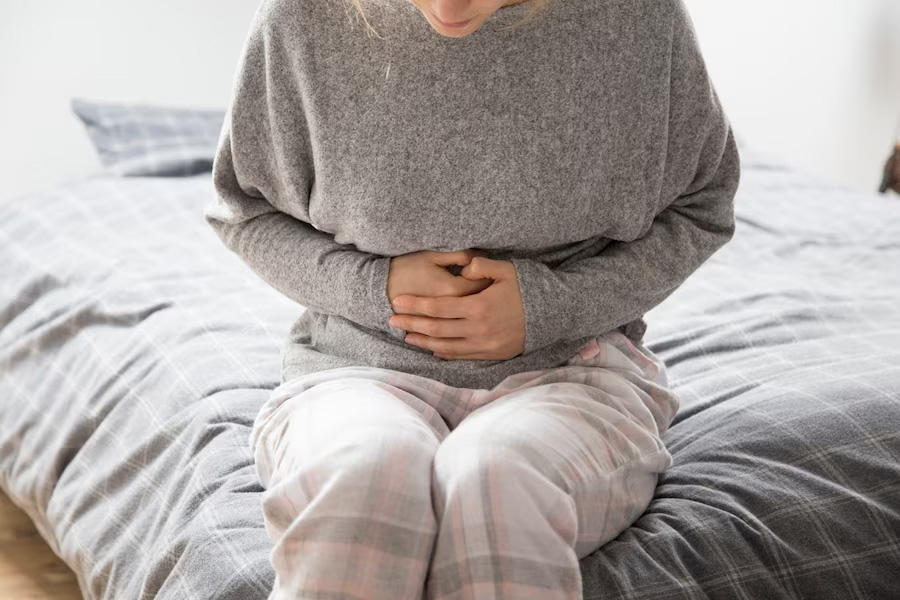
If you have heard of Irritable Bowel Disease (IBD), then you have probably also heard of Crohn's disease.
IBD is a common name used to describe two chronic conditions called Crohn's disease and ulcerative colitis. These cause inflammation in the Gastrointestinal (GI) tract, which is a passageway of the digestive system that leads from the mouth to the anus.
Table of Content:-
In this article, we will not only discuss what Crohn's disease is and why it occurs, but also look at the ways it impacts the body, particularly how it impacts the menstrual cycle in women.
What Is Crohn’s Disease?

Speaking with the OnlyMyHealth team, Dr J C Vij, Senior Consultant - Gastroenterology and Hepatology, PSRI Hospital, New Delhi, describes Crohn's disease as an inflammatory bowel disease that can affect any segment of the GI system, leading to symptoms such as diarrhoea, pain in the abdomen, and weight loss.
While the exact aetiology or cause of Crohn's disease is unclear, the doctor says that it is likely to be an autoimmune reaction.
Normally, your immune system fights off foreign invaders, like bacteria. But in Crohn's disease, the immune system mistakenly attacks the healthy tissues in your digestive tract, triggering inflammation and irritation and leading to uncomfortable symptoms.
Other factors that can increase the risk of Crohn's disease are genes, smoking, Nonsteroidal Anti-Inflammatory Drugs (NSAIDs), and a high-fat diet, according to the National Institute of Diabetes and Digestive and Kidney Diseases (NIDDK).
It is important to note that stress and eating certain foods do not cause Crohn’s disease, as per the health body.
How Crohn’s Disease Impacts Menstrual Cycle?

Crohn's disease and your menstrual cycle can influence each other in a two-way street, says Dr Vij.
When Crohn's disease flares up, your periods may become irregular and more painful. Medical News Today reports that people with this condition can have their periods later than the typical age, which is between 10 and 16 years.
Additionally, a 2014 study that involved over 120 women with newly diagnosed IBD found that around a quarter of the women had changes in their cycle length or bleeding duration just before diagnosis.
For women who already had cramps, some also experienced changes in how bad and how long the cramps lasted. The good news is that menstrual cycles tended to become more regular over time after diagnosis, and overall quality of life improved when cycles were regular, researchers noted.
On the flip side, menstruation can also worsen Crohn's symptoms, potentially increasing diarrhoea and abdominal pain. This suggests a connection between the hormones involved in your cycle and the activity of Crohn's disease, according to the expert.
According to a 2020 study published in the Sage Journals, healthy women were more likely to report changes in bowel habits during their period than women with IBD, Crohn's disease, or ulcerative colitis. However, women with IBD experienced more severe abdominal cramping and other symptoms compared to healthy controls.
The study also found that smoking, certain medications, and previous abdominal surgery in IBD patients increased the severity of their symptoms during menstruation.
Also Read: 7 Myths About Inflammatory Bowel Disease Debunked, Know Real Facts
How To Manage Crohn’s Disease For Healthy Menstruation

Dr. Vij says that the treatment for Crohn’s disease is not very satisfactory and mainly consists of antibiotics in the beginning, followed by anti-inflammatory drugs, and biologicals, which the World Health Organization (WHO) describes as 'a diverse group of medicines, grown and then purified from large-scale cell cultures of bacteria or yeast.’
“If biologicals are not affordable, steroids can also be tried, but treatment is almost lifelong,” he adds.
Other ways to manage Crohn's disease and menstrual problems include:
- Taking birth control pills (under the guidance of a healthcare professional)
- Stress management
- Increasing iron intake through diet or supplements (prescribed by a doctor)
- Regular physical activity
Conclusion
Crohn’s disease is a life-long condition that cannot be cured. Moreover, there is no single treatment that works for everyone. Therefore, the goal is to manage the inflammation that leads to various symptoms and health problems, including menstrual issues. Early diagnosis can help with timely management and improve the long-term prognosis by limiting complications.
Also watch this video
How we keep this article up to date:
We work with experts and keep a close eye on the latest in health and wellness. Whenever there is a new research or helpful information, we update our articles with accurate and useful advice.
Current Version